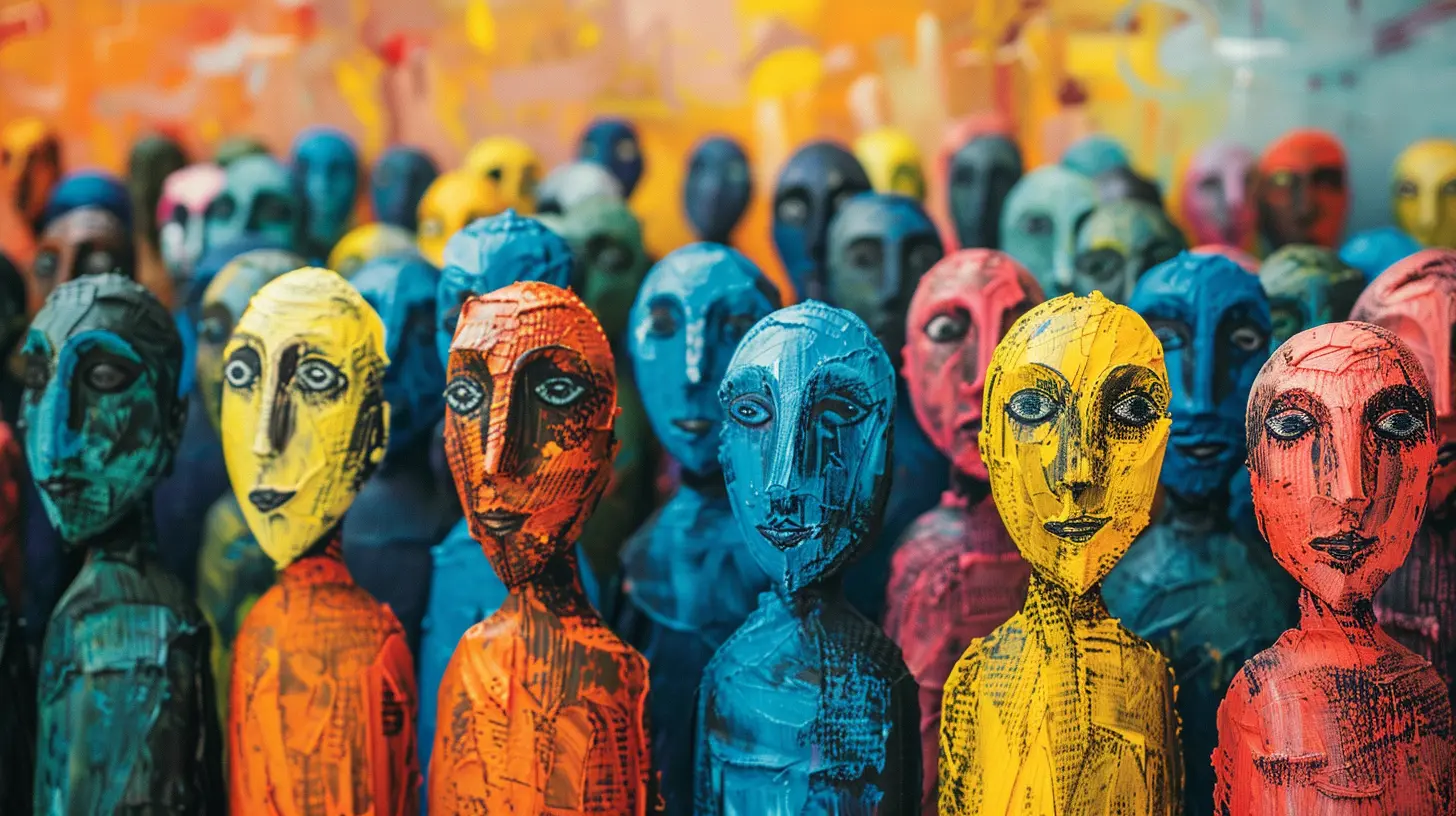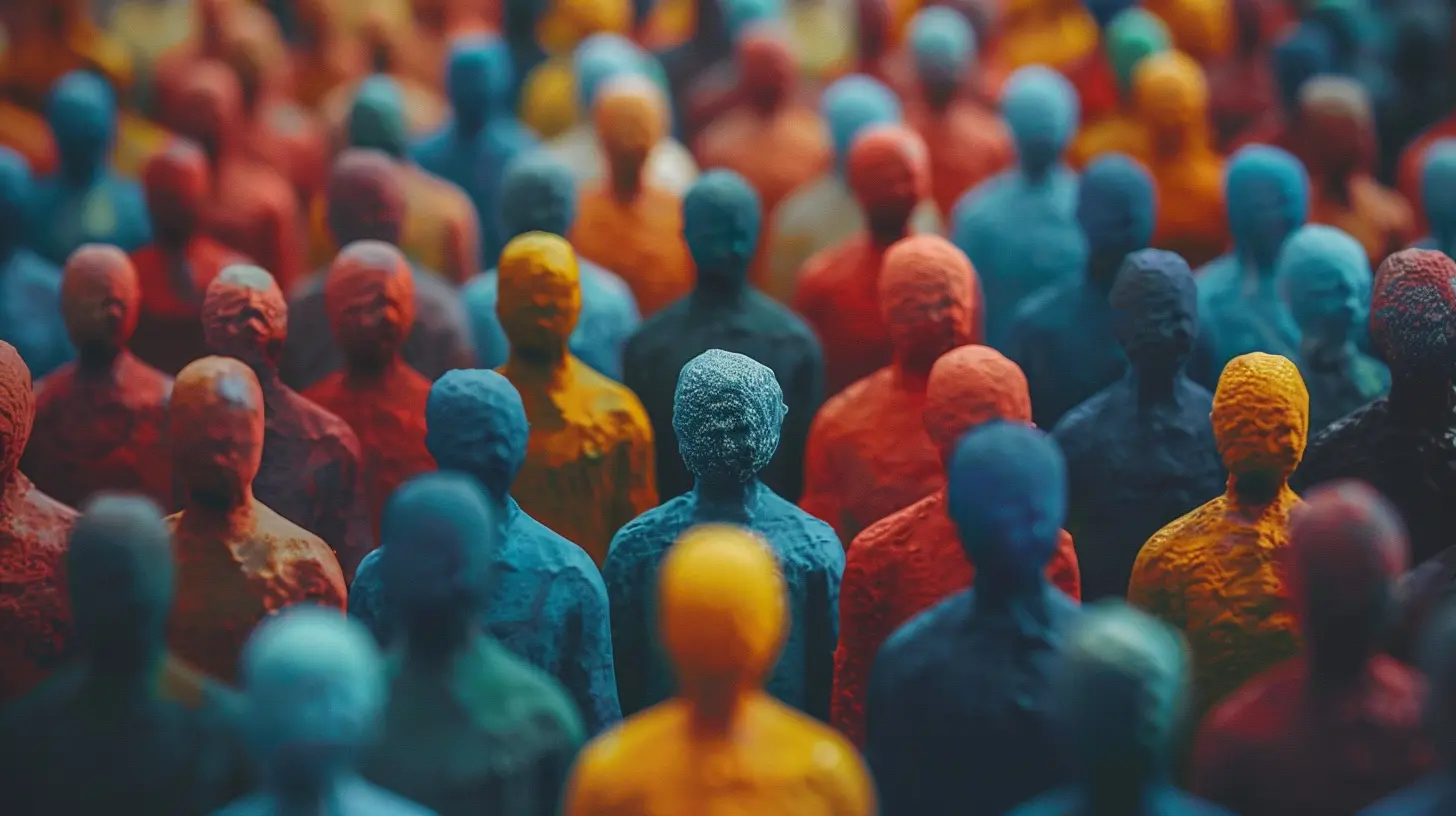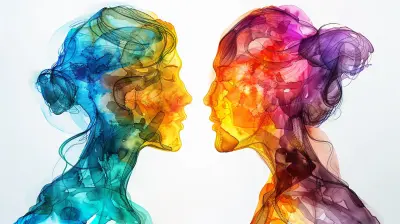The Power of Social Influence: How Group Dynamics Shape Behavior
4 February 2025
Have you ever caught yourself behaving differently when you're with a group of friends than when you're alone? Maybe you went along with a decision even though you had second thoughts, or perhaps you found yourself agreeing with something you would typically disagree with. It’s fascinating (and sometimes a little unnerving), but this is the power of social influence at play.
You see, humans are social creatures by nature. We're constantly influenced by the people around us, whether we realize it or not. This phenomenon, known as social influence, plays a significant role in shaping our attitudes, beliefs, and behaviors. In this article, we’ll dive deep into how group dynamics shape behavior, explore different types of social influence, and uncover some psychological principles that explain why we often act the way we do when surrounded by others.

What is Social Influence?
At its core, social influence refers to the way in which individuals change their behavior to meet the demands of a social environment. This influence can come from a variety of sources—friends, family, colleagues, or even strangers. It can be subtle, like picking up on social cues, or more direct, like peer pressure.There are three main types of social influence: conformity, compliance, and obedience. These might sound like technical terms, but they’re things we encounter in everyday life. Let’s break them down:
1. Conformity
Conformity is when we change our behavior or beliefs to fit in with a group. This could be something as simple as laughing at a joke you didn’t find funny because everyone else is laughing, or more complex, like adopting a political view because it’s popular in your social circle.Ever heard of the phrase "going along to get along"? That’s conformity in a nutshell. It's our brain's way of saying, "Hey, fitting in is safer than standing out." And our brains love safety.
2. Compliance
Compliance happens when someone asks you to do something, and you do it, even if you don’t necessarily agree with it. Think about the last time a salesperson convinced you to buy something you weren’t sure about. You probably complied because of the social pressure of the situation.In compliance, you're not necessarily changing your beliefs, but you're changing your actions because of a request or suggestion.
3. Obedience
This is when we follow orders or instructions from an authority figure. Obedience is often more direct than conformity or compliance. A classic example is the military, where soldiers follow commands from their superiors. Another famous case of obedience is the Milgram Experiment, where participants were instructed to administer what they thought were painful electric shocks to others simply because they were told to do so by an authority figure.
The Power of Group Dynamics
Now that we’ve covered the basics of social influence, let’s explore how group dynamics play a crucial role in shaping behavior. When you're part of a group, there's a whole different set of rules and behaviors that come into play. This is because groups have their own dynamics—ways of interacting and functioning—that can drastically change how we act.Groupthink: When Consensus Overrides Critical Thinking
One of the most powerful group dynamics is something called groupthink. This happens when a group prioritizes harmony and consensus over critical thinking. In other words, people in the group don’t want to rock the boat, so they go along with the majority opinion, even if it’s flawed.Take the infamous Bay of Pigs invasion as an example. Many experts involved in the decision later admitted that they had reservations about the plan, but they didn’t voice them because they didn’t want to disrupt the consensus within the group. The result? A disastrous outcome.
Groupthink can be dangerous because it stifles individual creativity and critical thinking. When everyone is focused on agreement, the group might miss out on better alternatives or solutions.
The Bystander Effect: When Everyone Thinks Someone Else Will Act
Another fascinating aspect of group dynamics is the bystander effect. This occurs when people in a group fail to take action because they assume someone else will. The larger the group, the more likely it is that no one will step up.This was tragically demonstrated in the case of Kitty Genovese, a woman who was attacked in New York City while multiple witnesses reportedly did nothing to intervene. Psychologists later attributed this to the bystander effect—everyone thought someone else would step in.
Social Loafing: When We Do Less in Groups
Ever been part of a group project where a few people did all the work while others slacked off? That’s social loafing in action. It’s a phenomenon where individuals put in less effort when they’re part of a group because they feel less accountable.Social loafing occurs because responsibility is diffused among the group members. If the group succeeds, everyone shares the credit, and if the group fails, the blame is distributed equally, making it easier for individuals to do less.
Deindividuation: Losing Yourself in the Crowd
Have you ever yelled something at a sports game that you’d never say in a one-on-one conversation? That's deindividuation, where people lose their sense of individual identity and personal responsibility when part of a larger group.Deindividuation often leads to behavior that people wouldn’t typically engage in because the anonymity of a group makes them feel less accountable. This can be seen in extreme cases like mob behavior or online trolling, where individuals say or do things they wouldn’t normally consider if their identity were known.

Social Norms: The Hidden Rules That Guide Us
Beyond the immediate influence of groups, there are also social norms—the unwritten rules that govern how we behave in society. These norms dictate everything from how we dress to how we talk to one another. They’re so ingrained in us that we often follow them without even realizing it.For example, in most cultures, it's a norm to stand facing forward in an elevator. If you were to turn around and face the back, you’d likely get some confused looks. Why? Because you’re breaking a social norm, and people notice that.
Descriptive vs. Injunctive Norms
Social norms can be divided into two categories: descriptive norms and injunctive norms.- Descriptive norms describe what people typically do in a given situation. For instance, if most people in your office take a lunch break at noon, that’s a descriptive norm.
- Injunctive norms, on the other hand, tell us what we should do. For example, holding the door open for someone behind you is an injunctive norm in many cultures.
We tend to follow social norms because they help us navigate complex social situations. Plus, breaking them can lead to disapproval or rejection, which most of us try to avoid.

Why Do We Follow the Crowd?
So, why are we so influenced by others? Why do we conform, comply, or obey?The Need for Belonging
One of the primary reasons we’re influenced by others is our deep-rooted need to belong. Human beings are social animals, and being part of a group gives us a sense of identity and security. From an evolutionary perspective, it made sense to stick with a group—there’s safety in numbers, after all.When we conform to group norms or follow the crowd, we’re essentially trying to maintain our place within the group. The fear of rejection or being ostracized can be powerful motivators for going along with the majority.
Uncertainty and Ambiguity
Another reason we follow the crowd is that we often look to others for cues on how to behave, especially in unfamiliar or ambiguous situations. This is known as informational influence—we assume that the group knows something we don’t, so we follow their lead.For instance, if you’re at a fancy dinner and you’re unsure which fork to use, you might glance around and see what others are doing. We rely on others to guide our behavior when we’re unsure of the “right” way to act.
How to Resist Unwanted Social Influence
While social influence can be helpful in many situations, it’s also important to recognize when it’s leading us away from our true values or beliefs. Here are a few tips for resisting unwanted social pressure:1. Be aware of the influence: The first step is recognizing when social influence is at play. Simply being conscious of how group dynamics are affecting your behavior can help you make more intentional choices.
2. Stay true to your values: When faced with a decision, ask yourself whether you’re acting in line with your personal values, or just going along with the group. This can help you stay grounded and make choices that reflect your true self.
3. Find supportive individuals: Surround yourself with people who respect your individuality and encourage you to think critically. Having a supportive network can make it easier to resist negative social pressures.
4. Practice assertiveness: If you’re feeling pressured to conform or comply, practice assertiveness. This doesn’t mean being aggressive, but rather standing up for your beliefs in a respectful and confident way.
Conclusion
Social influence is a powerful force that shapes our behavior in ways we often don’t even realize. From groupthink to social norms, the pull to conform, comply, or obey is ever-present in our lives. While these influences can help us navigate complex social environments, they can also lead us away from our true selves if we’re not careful.Understanding the dynamics of social influence can empower us to make more conscious choices about when to follow the crowd and when to stand our ground. So next time you find yourself in a group setting, take a moment to reflect: Are you acting in line with your values, or just going along with the group?
all images in this post were generated using AI tools
Category:
Social PsychologyAuthor:

Jenna Richardson
Discussion
rate this article
9 comments
Hudson Rodriguez
Fascinating insights! I’m eager to explore how group dynamics impact our everyday choices.
March 1, 2025 at 5:29 AM

Jenna Richardson
Thank you! I'm glad you found the insights intriguing. Group dynamics play a crucial role in shaping our decisions—excited for you to explore this further!
Seraphine O'Brien
This article brilliantly highlights how social influence and group dynamics can profoundly shape individual behaviors. Understanding these mechanisms is crucial for recognizing our own choices and fostering healthier, more positive group interactions in various settings.
February 21, 2025 at 3:45 AM

Jenna Richardson
Thank you for your insightful comment! I'm glad you found the article emphasizes the importance of social influence and group dynamics in shaping our behaviors. Understanding these mechanisms is indeed essential for fostering healthier interactions.
Winona Roth
Together we thrive, apart we wane.
February 17, 2025 at 4:35 PM

Jenna Richardson
Absolutely! Collective support enhances individual growth and resilience, highlighting the vital role of community in shaping our behaviors.
Carina Gibson
Embracing the power of social influence can transform our lives! By understanding group dynamics, we can harness positive connections and uplift each other. Remember, your environment shapes your behavior—choose wisely, surround yourself with positivity, and watch your potential soar!
February 17, 2025 at 4:29 AM

Jenna Richardson
Thank you for your insightful comment! Indeed, leveraging positive social influences can significantly enhance our personal growth and collective well-being.
Maisie Clayton
This article brilliantly highlights the profound impact of group dynamics on individual behavior. It’s fascinating how social influence can drive decisions, reinforce norms, and shape identities. Understanding these mechanisms is crucial for fostering positive group environments and encouraging healthier choices within communities. Truly insightful read!
February 15, 2025 at 3:56 AM

Jenna Richardson
Thank you for your insightful comment! I'm glad you found the article illuminating—understanding group dynamics is indeed essential for fostering positive change.
Harvey Franco
Understanding group dynamics reveals the profound impact of social influence on behavior, reminding us that our choices are often shaped by the company we keep.
February 13, 2025 at 5:28 AM

Jenna Richardson
Thank you for highlighting this key insight! Understanding how group dynamics shape our choices is essential for recognizing the power of social influence in our lives.
Echo McGuffey
This article beautifully highlights the profound impact of social influence on behavior. Understanding group dynamics can empower individuals to make more informed choices in their interactions. Thank you!
February 10, 2025 at 5:00 PM

Jenna Richardson
Thank you for your thoughtful comment! I'm glad you found the article insightful regarding social influence and group dynamics.
Brooke Hernandez
Ah yes, because who doesn't love being a mindless puppet pulled by the strings of our fabulous friends? Groupthink: the ultimate path to individual brilliance!
February 9, 2025 at 6:04 PM

Jenna Richardson
Group dynamics can indeed lead to conformity, but they also foster collaboration and innovation when diverse perspectives are embraced.
Hudson Romero
Understanding group dynamics is crucial for personal growth and decision-making in our interconnected lives.
February 6, 2025 at 5:55 PM

Jenna Richardson
Absolutely! Group dynamics play a vital role in shaping our behaviors and choices, highlighting the importance of awareness in our interconnected lives.
MORE POSTS

Setting Boundaries While Offering Emotional Support: A Guide to Self-Care

Emotional Exhaustion: The Silent Symptom of Burnout

Behavioral Insights into Consumer Choices and Marketing

When Social Anxiety Is More Than Just Shyness: Key Differences

Burnout in the Helping Professions: How to Care for Yourself

The Role of Self-Compassion in Overcoming Depression

The Impact of Personality Traits on Relationship Dynamics